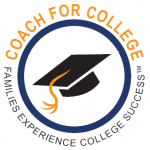Your Success Depends on Understanding the Proper “How?” and “Why?”
6 Financial Aid Appeal Letter Samples Bottom of the Page
Based on tens of thousands of appeal inquiries and the appeal cases we prepared; discover our Financial Aid Appeal 6-Step Approach Guide to Success, plus the five types of financial aid appeals. Convert process into action with six sample financial aid appeal letters.
- Emotion: Use a polite, respectful tone and leave emotion out; thank them for the financial aid award, thank them for their consideration, and send a thank-you note after their appeal decision. Do not use the words “negotiate, bargain or financial aid officer.”
- Structure: Ideal letter length is one page using Exhibits for supporting documentation; use a business block style format, address the letter to a specific person if possible, use proper grammar, avoid passive tense when possible, and check spelling several times.
- Instruction: Follow the school’s financial aid appeal procedures. Call the school’s aid office if you have questions, especially when their website is not helpful. Do not discuss the specifics of your appeal because you can hurt your chances before you get started.
- Authority: Take the time to understand Professional Judgment, which permits the Financial Aid Administrator/s to make changes to the FAFSA data elements in your favor (Higher Education Act Sec. 479(a).
- Strategy: Determine your type of appeal/s (see below), and understand the financial aid methodologies involved. Are you appealing for federal money, institutional money, or a combination? Schools provide federal money first, then their own institutional money.
- Success: Your financial aid appeal letter must present a precise narrative with numerical support, and include appropriate documentation motivating the school’s Financial Aid Office to lower your Family’s Expected Family Contribution (EFC). A lower EFC increases your family’s financial need which usually provides more financial assistance.
5 Types of Financial Aid Appeals
Special Circumstances Appeals
The Higher Education Act references these circumstances;
- Sibling tuition elementary and secondary school
- High childcare and dependent care including elder care
- Recent unemployment of family member,
- The dislocated worker,
- Significant changes in income/assets affecting family cash flow,
- The student stops work to enrolls full-time in college,
- A parent dies, becomes disabled, incarcerated, or institutionalized,
- Loss of untaxed income, such as child support, social security, etc.
We have identified more than 20 broad categories that include numerous events that have qualified on appeal.
The litmus test question is, does the situation affect the family’s ability to pay for college? A second consideration is whether the expense is discretionary.
The objective is for the financial aid office to make adjustments to the data elements of the FAFSA which lowers the family expected family contribution and increases the family’s financial need (can result in a revised higher aid award).
Cost of Attendance Student Budget Appeal
These adjustments are usually educational costs in nature and typically pertain to the student budget within the COA.
Student budget adjustments can qualify as an increase in the cost of attendance. The Financial Aid Office can make certain adjustments to the student budget component of the Cost of Attendance.
The parameters outlined in the Higher Education Act of 1965, Section 472 are;
- Disability-Related costs,
- Cost of Education Loan Fees,
- Dependent Care,
- Transportation costs
- Student Health Insurance Costs and Student Medical Fees,
- Increased Boarding Costs Due to Special Diet for medical/religious reasons,
- Books and Supplies Allowance for Purchase of a Computer.
An adjustment to the cost of attendance (COA) is a dollar for dollar change in family need. In contrast, unusual circumstance changes are a percentage change for the income/asset percentage of the student and the parent.
It is allowable for the financial aid administrator to make adjustments to both the COA and the data elements with proper documentation.
Institutional Appeals
Check the fairness of the aid award offer based on the historical awards of the college (Percentage of Need Met). When this is your only point, you may want to ask for a specific amount.
In some situations, an institutional appeal can be included with other categories, especially when the initial financial aid award’s percentage need met is low.
These appeals typically are more successful with private schools who require the CSS PROFILE financial aid form. The CSS PROFILE calculates a different EFC from the FAFSA. It is used to provided grants utilizing the school’s money.
In awarding financial aid, all schools look toward federal money (FAFSA) first, then institutional money (CSS PROFILE) when providing student awards.
Satisfactory Academic Appeal Progress (“SAP”)
SAP suspensions result in the loss of federal financial aid unless there is a successful appeal for reinstatement.
Three disqualification events trigger losing financial aid eligibility.
- Cumulative Grade Point Average, the standard minimum is 2.0,
- Completion Ratio, the student must complete 67% of attempted classes with a passing grade.
- Maximum Time Frame, Federal Financial Aid terminates, when attempted hours rise above 150 hours required for the student’s major.
![]() Strategy Alert: How to Appeal a Financial Aid Suspension (SAP Appeal)?
Strategy Alert: How to Appeal a Financial Aid Suspension (SAP Appeal)?
- Agree with the Suspension – Introduction sentence where you apologize and leave any emotion/excuses out of the letter.
- What happened? Extenuating circumstances beyond your control that caused you not to maintain satisfactory academic progress.
- What has Changed? What have you learned from the experience, and what changes have you made?
- Academic Plan – Usually an appeal form signed by your Academic Advisor providing a pathway (class selection) toward regaining SAP.
- Your Promise – Closing where you thank the review committee and assure them it will not happen again.
Student Dependency Override Appeal (“Unusual Circumstances“)
Department of Education 2017-2018 FAFSA changes provided the reinterpretation of the definition of homeless youth. For students older than 21 and younger than 24 who are unaccompanied and homeless or self-supporting, and at risk of being homeless qualify as independent students. This group can now self-qualify on the FAFSA (no need for Financial Aid Administrator approval).
For age 21 and under, a student is independent if, at any time after July 1, 2016, it can be determined that he is an unaccompanied youth who is homeless or is self-supporting and at risk of being homeless. The Financial Aid Administrator (FAA) decides the independent status. Social support groups where the student receives services can be instrumental for the student’s success. They forward their information to the FAA.
Successful Appeal Letter Outcomes
Our Experience Can Help You!
[Last names | schools omitted for privacy reasons.]

Jim Kuhner, Appeal Expert
Appeal Case: “I was not sure where to find help until I found your financial aid appeal page. Your service is exceptional, and that is rare these days. Just one of your strategies saved us over $8,000. I have told many people about what you are doing to help us, and I intend to tell everyone that I meet. Most of my acquaintances also have children in college. Thank you.” –Sherry H. Maryland [ Appeal Award $29,000]
Appeal Case – “Given my status at the time, I felt completely lost and was afraid to make the wrong move given the risks. I wanted guidance and wasn’t completely sure where to turn. I exchanged emails with Mr. Kuhner then moved forward with his coaching service. My entire situation was nerve-wracking, and I did not feel I was prepared to handle it on my own. Now, I feel great that my problem is resolved. And even better, I have gained knowledge I did not previously know or fully understand. It was also a pleasure working with Mr. Kuhner (Coach-for-College), who was nothing but professional in assisting me.” – Dorothy D. – New Jersey [Appeal Award $3,000]
Appeal Case – “As you know, I needed to appeal but was not sure of the best approach. I was surprised when you told me you only accept certain appeals because you want to make sure they are valid appeals. Now I understand your process and your appeal expertise. I am so happy my appeal was valid; your service is the best investment I have ever made.” – Sophia H. – Arizona [Appeal Award $11,000]

Complimentary Phone Conversation Click Above
Email: [email protected]
Special Direct Line to Jim 817-600-0576
Financial Aid Appeal with Sample Letters
Inflated Income | One Time Disability Insurance Benefit and Forced Stock Liquidation Payment
June 10, 2018
Ms. Jennifer Lopez
Financial Aid Officer Students M-S
6University of the Pacific
165 University Drive
Los Angeles, CA 90002
Dear Ms. Lopez;
We submitted our Financial Aid Forms FAFSA and CSS Profile on March 30, 2018.
We did not file earlier because last year, we did not qualify for financial assistance. We recently became aware that if we notified Honors University and documented our financial hardship that your decision this year might be different.
Cindy and John Stevens are the parents of Julie M. Stevens who hopefully can start her senior year 2018 and graduate the following spring meeting her graduation goal of 4 years.
Please bear with us while we take you back in time to explain the severe accident that occurred and the medical/financial devastation to a very successful executive (Exhibit 1) and his family.
John Stevens was traveling on business when he suffered a severe stroke in June 2015. After a life-saving operation, John received physiological, occupational, speech, and psychological therapy, and assistance from family members.
As a result of the stroke, John’s official status according to the Social Security Administration is total and permanent disability with no possibility of employment (Exhibit 2).
John suffers multiple ailments, including heart complications, short-term memory loss with significant walking impairments.
John before is required resignation (Exhibit 3) was a senior executive with his company. The company provided upper-level executives’ with disability insurance. In September 2016, he received a total of $940,000 pre-tax paid.
Federal and state taxes absorbed a significant part of the distribution (Exhibit 4).
His company also provided stock options which had to because of a forced liquidation measure when the owner leaves the company’s employment. He received a taxable distribution of $325,000 in June 2016 (Exhibit 5).
The disability payment and stock option distribution are one-time events which unfortunately inflates the family’s actual ability to contribute to Julie’s education. The disability payment has to provide care for the rest of John’s life; he is currently 53. The stock distribution was used to purchase living quarters that included making the home handicapped ready. This was necessary since his only income is Social Security, and his wife earns $14,000 per year. It would be impossible to qualify for a mortgage.
We are asking Honors University to consider our special circumstances as you review our situation recognizing the FAFSA results inflate our family income and overstates our financial ability to pay for Julie’s senior year.
Respectfully,
___________________________________
Julie M. Stevens, Student ID# 12419394
Satisfactory Academic Progress Suspension – SAP Appeal
May 8, 2018
Student Financial Aid
Johnson College
Student Financial Center
1652 Elm Street
Houston, TX XXXXX-XXXX
Re: Skylar Salazar ID # 54536740 SAP Appeal
Dear Appeal Committee; [this school asked to address the committee, pay attention to instructions]
I am appealing my satisfactory academic progress suspension. First, I blame only myself. I can see looking back numerous mistakes and miscalculations that led to my poor academic performance. One of my biggest mistakes was not reaching out to the academic support systems that Johnson College offers.
When I returned home for summer break, I understood that I needed to develop “daily” academic habits where learning is a process rather than a series of poor choices.
I said to myself, “Start now, this summer not in the fall” to prove to myself that I deserve your consideration in this appeal process. I started by enrolling in the local community college taking a Speech Communications course instructed by Professor Applegate (Exhibit 1), the first session receiving an “A” in the class (Exhibit 2).
During the second session, I am enrolled in English 1480 Composition II and Government 1325. As I submit this letter, I am earning a “B.”
Mr. David Downey (my academic advisor) and I are working together. I will use the resources he provides and connects with others who can help me restore my academic standing. I also want to find an accountability partner.
During summer school, I am focusing on study habits scheduling time each day. I find it thrilling when I follow the change; then the next day look back at the “small win.” Many small wins can help me stay on track toward academic success because it measures your activity daily. Looking back, this is the critical point of my failure.
Letting my parents down, letting myself down, and letting Johnson College down – it is not who I am. I am determined to regain satisfactory academic status.
Thank you very much for your consideration.
Respectfully,
________________________________________
Skylar Salazar – Student ID # 154536740
Enclosures:
Johnson College Student Academic Progress Appeal Form
Exhibit 1: Professor Applegate Letter of Recommendation
Exhibit 2: Johnson College Transcript Record
Unusual Income Event | Loss of Child Support | Sibling Private Education Tuition Expense | Loss of Income
January 26, 2018
Ms. Joan Stinson, M.B.A.
Financial Director School Name
1640 5th Street
Berea, OH 44017
Dear Ms. Stinson;
We would thank you for the school’s financial award of $13,750 per year (Exhibit 1).
My son, Gil and I are excited about the possibility of him attending your school. Through our research, we understand the academic and community life offerings which we feel are an outstanding opportunity for Gil.
However, we would like to bring to your attention our difficult financial situation that may result in Gil not being able to attend your school.
As you know, we applied for Financial Aid with the completion of the FAFSA.
Our family 2012 income reported on the FAFSA is $104,215.
The FAFSA does not accurately depict our family financial situation and the ability to contribute to Gil’s college expenses.
First, my income was higher last year as a result of a bonus from my employer of $29,000. The generous act on my employer’s part is a one-time event (Exhibit 2 Employer Letter).
I no longer receive child support from Gil’s biological father because he turned 18 years five months ago. This reduces our family income by $8,400. On top of that, I asked Gil’s father to help with educational costs, and he said he would not help. We were divorced in 2016 (Exhibit 3).
Also, we are responsible for our 14-year old son’s private school tuition, which for this year is $7,500 and trending upwards.
On top of all this, my husband lost his job three months ago. In this economy and at his age (58) we are hopeful but very uncertain when he might find employment. In the meantime, we no longer receive his income. He is receiving unemployment benefits (Exhibit 4 Monthly Income Reduction).
Both Gil and I sincerely appreciate your time in reviewing our financial situation. As you can see, the FAFSA reporting process does not account for our situation.
Gil’s first choice is your school; it always has been since he first researched your school and visited. He especially likes the English major department head (Professor Johnson) who he was fortunate to meet.
We have no other choice without your consideration in looking toward several other schools where Gil was accepted and received financial aid awards. In doing our budget, these schools are more affordable with our available financial resources and family ability to pay for college.
Gil wants to attend your school but understands the financial situation. His first choice remains your college (insert name).
Can you consider making your offer more affordable to our family by improving the offer to $19,000 from the current $12,600?
Gil, his father, and I would like to meet with you next week to thank you for your consideration in person.
We will call for an appointment.
Thank you so much for your assistance.
Exhibits: (4)
cc: Professor Johnson
One-Time Income Bonus | Accounting Only Entry Resulting in Taxable Income without Receipt Cash
March 3, 2018
Mr. Jack Caldwell
Director of Financial Aid Great Lakes College
100 N. Main Street
Detroit, MI 48203
Dear Mr. Caldwell:
When we filed our FAFSA, we were alarmed at our income totals computed by the financial aid form that totaled $197,000. Our family’s income included three very unusual one-time income events.
- A one-time bonus of $95,000 granted in 2016 that will not be awarded any year after that.
- A paper transaction without receipt of the money resulting in the taxable income of $38,500 from an irrevocable trust.
- A book-only income entry from a non-participatory S corporation for $22,600.
According to a Financial Aid Administrator at Walden University, under a rule called professional judgment, my paper income can be ignored, since it unavailable for college expenses, and my one-time bonus of $70,000 can be eliminated from income and treated as an asset.
Walden indicated from their review of our circumstances and our revised FAFSA filing we would be eligible to receive $14,755 in financial aid from their university.
Great Lakes College is my daughter’s number one choice because she is impressed with your college community and wants to play volleyball for Great Lakes College (see letter from your Volleyball coach).
She has offered for her athletic abilities from other schools, University of ABC, State University at Illinois, and College of Williams as well as some other Division III schools.
Your school is more expensive than any of the schools we are considering. However, we would select your school if you would revisit our unusual financial circumstances reference above.
Please review our special circumstances. We are asking for an adjustment to our income calculation computed by the FAFSA that would qualify us for the $14,755 indicated by Walden University. Without a revision, it’s highly likely my daughter can attend your school.
I would appreciate a response as soon as possible so that we can make the appropriate arrangements for my daughter’s future.
Sincerely,
EFC Reduction | Two Students in College
May 10, 2017
Ms. Karen Smith
Financial Aid Officer
Anywhere University
1000 Any Street
City, State, ZIP Code
RE: Financial Award Letter for Heath Jones, Student OSI ID Number # 16-593940
Dear Ms. Smith:
Our family would like to thank you for Heath’s recent financial aid award letter. However, we are very concerned about the results. Our expected family contribution dropped from $20,365 in 2016-17 to $6,987 for the 2017-18 school year, yet the award package left us with an additional need of over $8,500. The reduction in this year’s EFC is because of asset reduction, plus the fact that we will be sending two students to college during the 2017-2018 year. In spite of these changes, however, the amount of the current award is essentially the same as the award for 2016-17.
Every college publication on the market states your university meets about 95% of its student’s need, and we have seen award letters sent to high school seniors in our area substantiating this number. We are asking that Anywhere University reward Heath, a current student with a 3.4 GPA, an award package equal to, or better than, an incoming freshman. It will be financially difficult for us to continue to send Heath to Anywhere University without an increase in financial aid.
We would appreciate your review of our circumstances and response to our present award package as soon as possible, so that we may begin to make alternative arrangements, if necessary.
Sincerely,
Demonstrated Interest | Matching Another Financial Award
April 20, 2017
Mr. Lionel Anderson
Director of Financial Aid
Anywhere University
1000 Any Street
City, State, ZIP Code
RE: Financial Award Letter for Heather Smith, AU Student ID Number: 15-14938
Dear Mr. Anderson:
Enclosed are our Student Aid Report and a copy of (Another University’s) Award Letter per our recent telephone conversation. We discussed our family’s present financial situation and how it would be financially difficult for Heather to attend Anywhere University unless the university reconsiders her aid award. You said you would do everything possible to provide additional assistance for Heather and suggested we send you the above-stated information.
As you know, Heather is a very talented young lady and wants to attend your school. However, as the enclosed (Other University’s) award shows, other schools have committed substantially more money to Heather’s education.
Both my wife and I obtained new jobs last year and are trying to pay the debt we incurred while unemployed during the past year. This has forced us to take a seriously consider Stanford’s award as an economically viable alternative. However, Heather would prefer to attend Anywhere University. If there is any way you can increase Heather’s award to make the cost of Anywhere University affordable for us, Heather will commit to attending your university for the 2017-2018 school year.
Please contact me as soon as possible so that we can make the appropriate arrangements for Heather’s future.
Best Regards,
John Brown

Complimentary Phone Conversation, Click Above
Email: [email protected]
Special Direct Line to Jim 817-600-0576
We will also explain what your EFC number means and ways to lower your score in the future.






 How to
How to